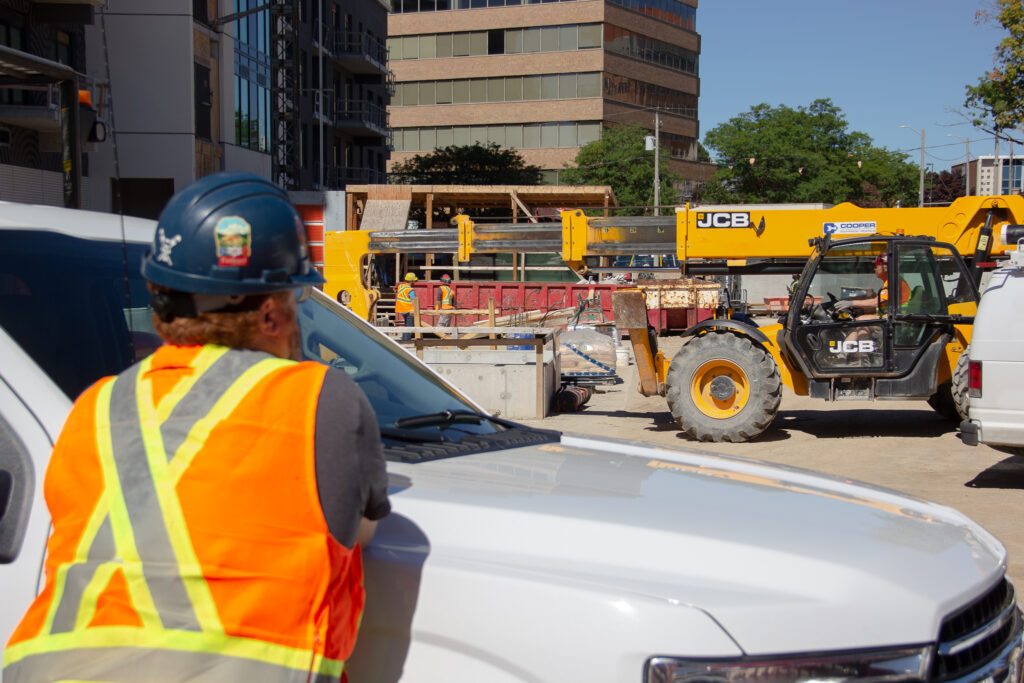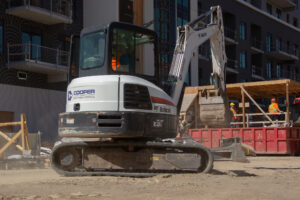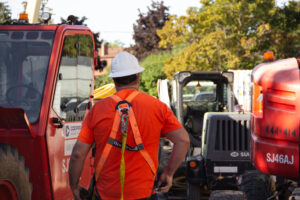
Are we safer than we were yesterday?
By Dave Badger
Construction Health & SafetyIf you’re not asking this question, you’re not doing enough. Safety programs, like COR, can help.
Until accidents don’t happen, until people don’t get hurt, we can always be doing more to keep workers safe. When was the last time you heard about a critical accident on a jobsite? If it was a site of yours or one involving a partner company, odds are you remember exactly where you were. Those moments stick with us.
We’ve made incredible advancements in construction safety aided by decades of learning, making safety a priority, and leveraging all the technology, tools and reporting to help. We are safer now than we’ve ever been, and yet those calls still come in. We still need to get better.
In Canada, one out of every five worker deaths is in construction. The past decade has seen rapid change around safety. Equipment and technology now help to identify potential hazards before they become risky to workers. But these advancements aren’t enough. Standardizing your operation’s safety practices does more than setting expectations about safety; it shows your people that you care about them. And when people feel cared for, they stay.
The construction industry is regulated by health and safety acts, but there is no legal requirement for businesses to obtain safety qualifications. More companies are raising the bar on safety practices, however.
Certification of Recognition, or COR certification as it is usually referred to, is a set training matrix and system used to measure a company’s safety management. The gold standard within the construction industry, COR-certified companies have invested in an extensive program that focuses on integrating safety into all aspects of business. Getting there takes a lot of work and commitment, but with the right approach and mindset, you can create a new culture of safety.
If it’s not required, why do it?
Keeping people safe keeps people. Caring about employees isn’t just morally right – it’s crucial to retaining your people. This is particularly important in today’s labour market. Moreover, customers expect contractors to meet their standards; your practices while working on their properties impact their reputation.
Certification can also be the difference between being awarded a job or passed over – the public and private sector are increasingly requiring COR as a pre-bid qualification for contractors.
COR also provides a third-party vetting service, ensuring you have the right information and accreditation, and that processes are in check. You can be confident that your safety procedures are meeting a specific standard and that your workers know how to proactively identify, evaluate and control potential hazards. This can go a long way in preventing incidents or injuries from occurring.
When accidents occur, wage losses, employer costs, legal fees or even cost of equipment repairs or property damage can be devastating to your bottom line. In some provinces, the program can help you qualify for financial rewards and recognition and can lead to lower annual insurance premiums. Although the costs of programs like COR can be substantial, they are an investment that can have major impacts on your business.
Change starts with buy in from senior management
In business, culture changes trickle down from the top. Your leadership team needs to be vocal about their commitment to safety. It’s one of the most important factors when it comes to changing company culture and ensuring new processes are understood and followed.
At Cooper, we have a safety evangelist in Darryl Cooper. He drove our evolution from a heartfelt belief that we could do a better job to take care of our people. While some team members were slow to see the value for all the perceived red tape, we’re now hearing how “no one else takes care of [them] like we do.”
Leadership support for financial investment is also crucial. Our pursuit of COR certification required equipping every employee with a company phone and implementing a safety app so that our people could check in regularly and easily report near misses, hazard identifications and when necessary, injury incidents. Among the benefits, however are that the data and information collected can be analyzed and used to review job hazard assessment, enhance training and ultimately help you make better business decisions.
COR helps to build a new culture and create the processes for change
For contractors who are considering this journey, the first step is to conduct a hazard assessment of your jobsites. Your partners, perhaps even your equipment rental dealer, can help you define risks before you attempt to fix the problem.
Like any change that occurs in your company, it takes commitment and a mindset to do better. Educating and training your workforce on new processes is essential. Our new hires are paired with a mentor to hold them accountable and make sure they understand and internalize our safety practices.
As the construction industry starts to put more emphasis on safety, COR certification will increasingly become a requirement for future success. Add in the benefits of easier recruitment and retention, subtract the reputation and financial liabilities, and the math on COR certification checks out. COR certification is good for business.
Dave Badger is the safety manager for Cooper Equipment Rentals. He has more than 25 years of experience as a health and safety professional in the rental business and is a certified trainer for mobile equipment, working at heights, and propane.








